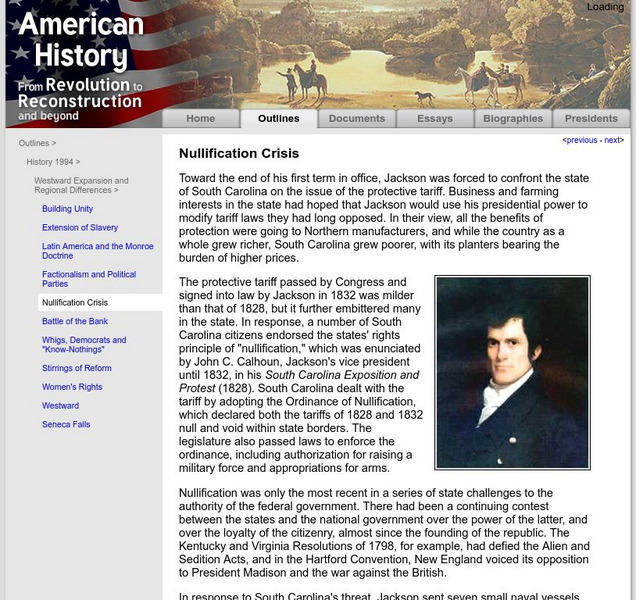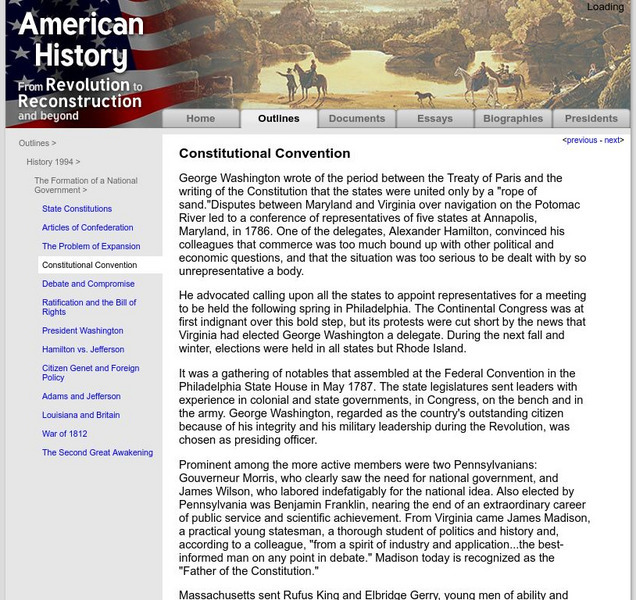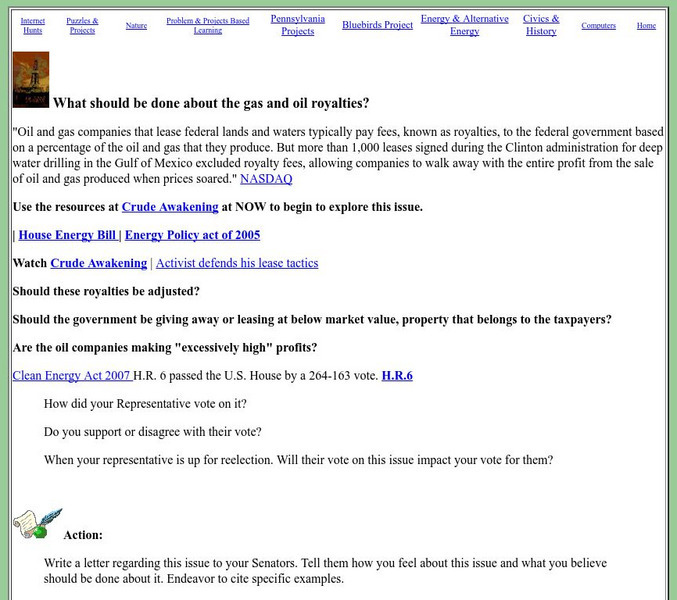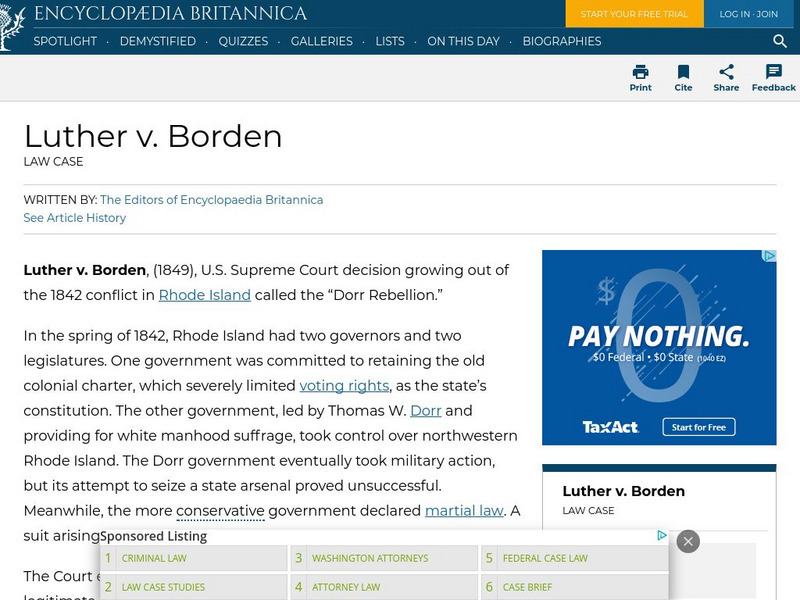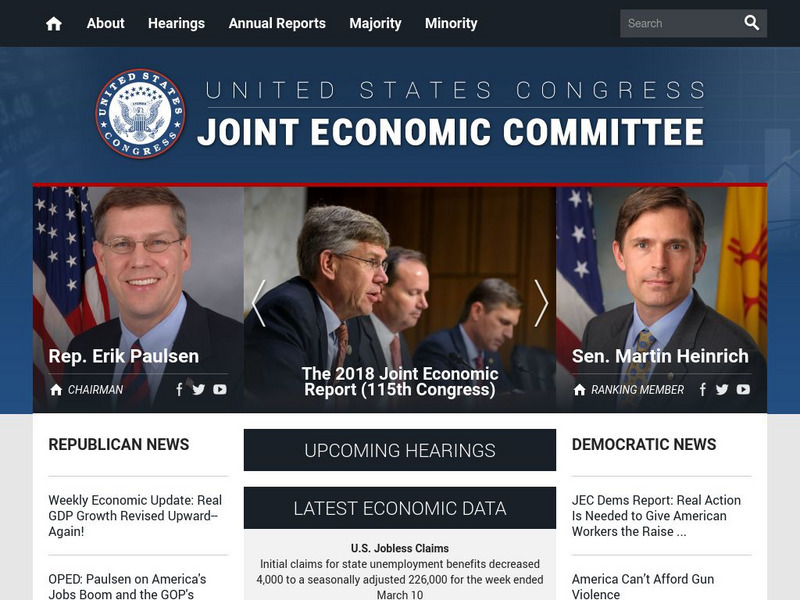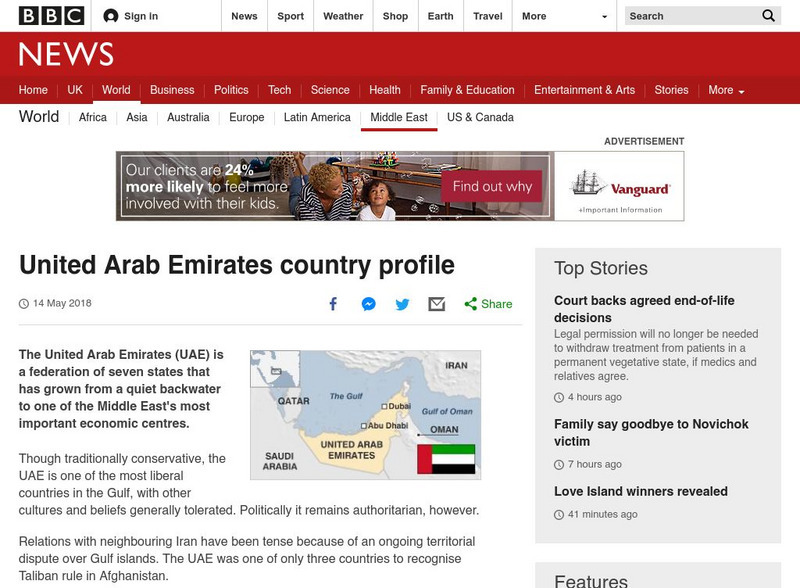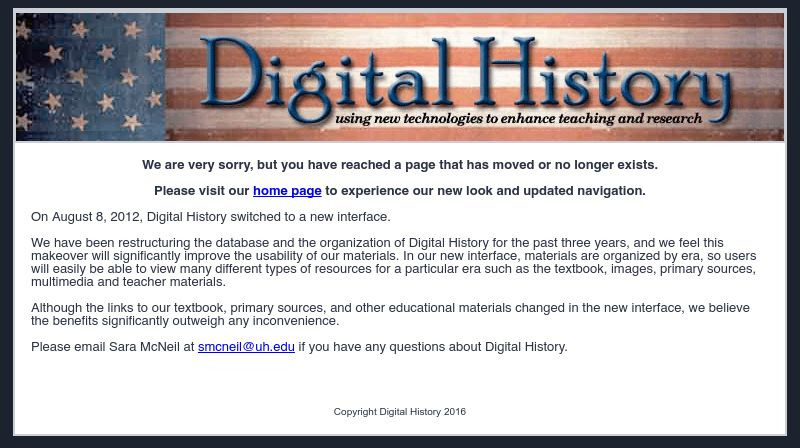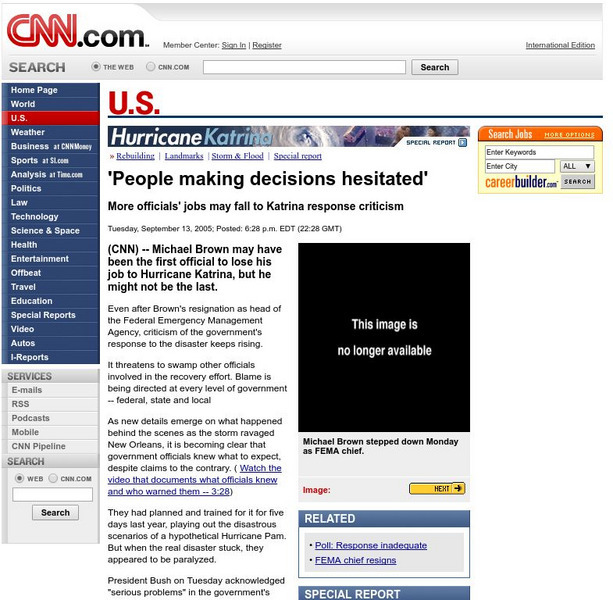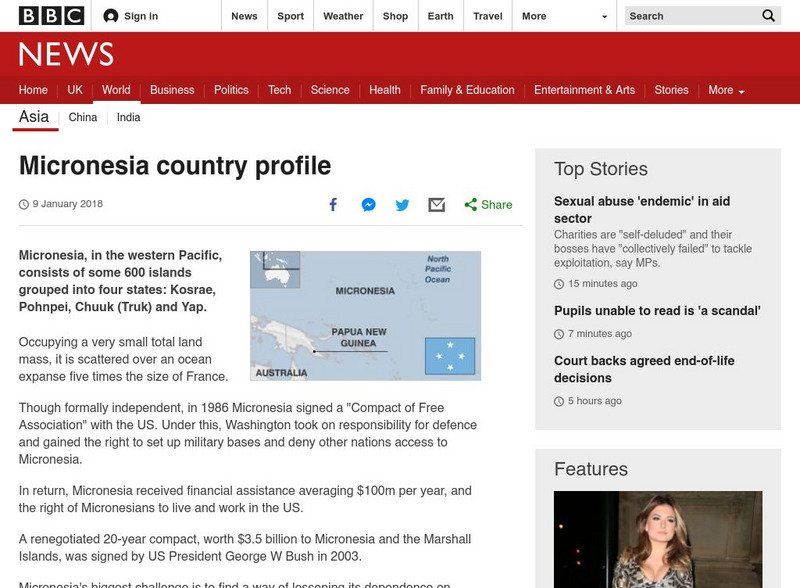Hi, what do you want to do?
Other
Us District Courts
This is a comprehensive government site that links you to all of the district courts in the United States. It is easy to navigate and find necessary information. The large map helps you locate the district of your choice.
University of Groningen
American History: Outlines: Nullification Crisis
This resource explains the conflict between Jackson and the state of South Carolina over the state's right to nullify federal tariffs. This conflict almost brought armed conflict between the federal government and the state.
Other
Justia: Luther v. Borden
At the period of the American Revolution, Rhode Island did not, like the other States, adopt a new constitution, but continued the form of government established by the Charter of Charles the Second, making only such alterations, by acts...
A&E Television
History.com: Hurricane Katrina
Early in the morning on August 29, 2005, Hurricane Katrina struck the Gulf Coast of the United States. While the storm itself did a great deal of damage, its aftermath was catastrophic Levee breaches led to massive flooding, the federal...
University of Groningen
American History: Outlines: Drafting the Constitution
Essay covers from the Articles of Confederation and the problems of disunity of the new states after the Revolutionary War, internally as well as externally, to the Constitutional Convention, an attempt to address the Articles' problems....
University of Groningen
American History: Outlines: Constitutional Convention
George Washington wrote of the period between the Treaty of Paris and the writing of the Constitution that the states were united only by a "rope of sand."Disputes between Maryland and Virginia over navigation on the Potomac River led to...
Curated OER
Etc: United States During the Civil War, 1861 1865
A map of the United Stated during the American Civil War (1861-1865) showing State and territory boundaries, with dates of statehood for the territories from 1796 to 1861. The map is color-coded to show the Union States, Confederate...
Curated OER
Etc: Maps Etc: United States and Confederate States, 1861
A map of the United States and Confederate States in 1861. The map is color-coded to show Free Union States, Slave Union States, Confederate States seceding before April 15, 1861, Confederate States seceding after April 15, 1861,...
Curated OER
Etc: Maps Etc: United States at the Outbreak of the Civil War, 1861
A map of the United States and territories in 1861 at the outbreak of the Civil War. The map is color-coded to show the Union Free States, the Confederate States seceded before April 15, 1861, the Confederate States seceded after April...
Cynthia J. O'Hora
Mrs. O's House: What Should Be Done About Oil and Gas Royalties?
Engage the classroom in studying about oil and gas royalties paid to the government, in some cases not paid, with resources drawn from leased land paid for by the government. Take research results and contact state and federal government...
Encyclopedia Britannica
Encyclopedia Britannica: Luther v. Borden
In the spring of 1842, Rhode Island had two governors and two legislatures. One government was committed to retaining the old colonial charter, which severely limited voting rights, as the state's constitution. The other government, led...
iCivics
I Civics: Gibbons v. Ogden (1824)
This mini-instructional activity covers the basics of the Supreme Court's decision that interpreted the Commerce and Supremacy Clauses of the U.S. Constitution and affirmed the federal government's superiority with regard to its...
US Senate
Joint Economic Committee
The Joint Economic Committee, composed of memebers from both the United States Senate and the House of Representatives, reviews economic conditions and recommends improvements in economic policy. The content of the website includes...
BBC
Bbc: News: Country Profile: United Arab Emirates
BBC News presents a general overview of the United Arab Emirates which is a federation of seven states. Focus is on history, current information, country facts, political leaders, and news media. Provides links to a timeline of key...
University of Groningen
American History: Biographies: Alexander Hamilton
This site is provided for by the University of Groningen. Alexander Hamilton represented the growing movement towards a strong national government. Read the beginning stages of the nationalist movement, the conflicting ideas of state...
Digital History
Digital History: Challenges Facing the Nation
The new United States had no blueprint to follow in establishing a new democratic government. Read about the challenges facing the new nation, and how it dealt with ways to make the government work.
iCivics
I Civics: Nationbuilder in Chief
Students learn about some of the decisions and actions the first presidential administrations took to make sure the United States would be strong enough to last.
Council for Economic Education
Econ Ed Link: Why Cities Provide Tax Breaks
Like the state and federal government, local governments offer tax incentives to businesses to help solve economic and/or environmental problems. In this lesson, learners will explore three different cities and determine what incentives...
CNN
Cnn: 'People Making Decisions Hesitated'
Report that explores the reaction of local, state, and federal government officials to Hurricane Katrina. Report is from September, 2005.
Other
Streetlaw: Careers in the Law
If you are interested in being an attorney, corrections officer, court reporter, forensic scientist, police officer, judge or government agent, check out this description of several legal careers. Learn about salary, required education,...
Kansas Historical Society
Kansas Historical Society: Who's the Boss: Kindergarten [Pdf]
This is a comprehensive lesson plan for early elementary students to research and present information (PDF format). Students will learn through primary sources the chain of command that we all must live under. Students will consider...
Travel Document Systems
Tds: Malawi: History
Learn about Malawi's history from its paleological beginnings to its recent elections. Information is from the U.S. State Dept. Background Notes.
Rock and Roll Hall of Fame
Rock & Roll Hall of Fame: Sti Lesson 42: The Bill of Rights Is a Rockin
Students are aware of most their personal rights and freedoms. However, many have not critically evaluated the significance of the Bill of Rights and are unaware that the Bill of Rights only applied to the federal government from 1791...
BBC
Bbc: News: Country Profile: Micronesia
Explore the western Pacific islands of Micronesia in this overview from the BBC. Learn facts and history of the country, view a timeline and learn about its leaders.






